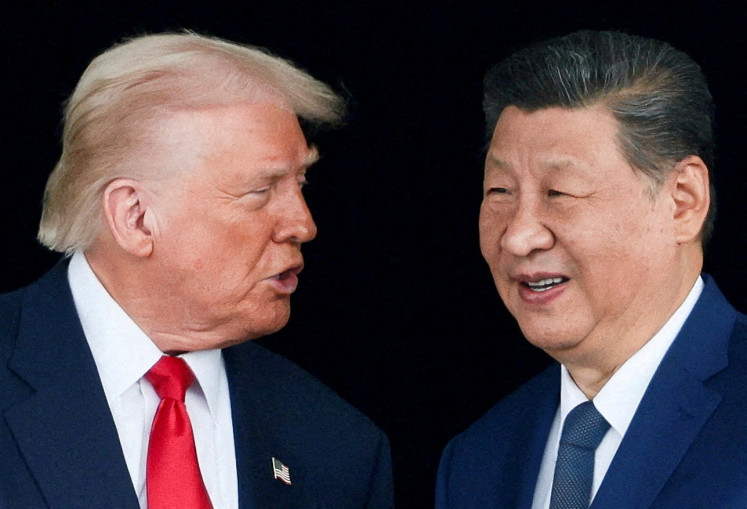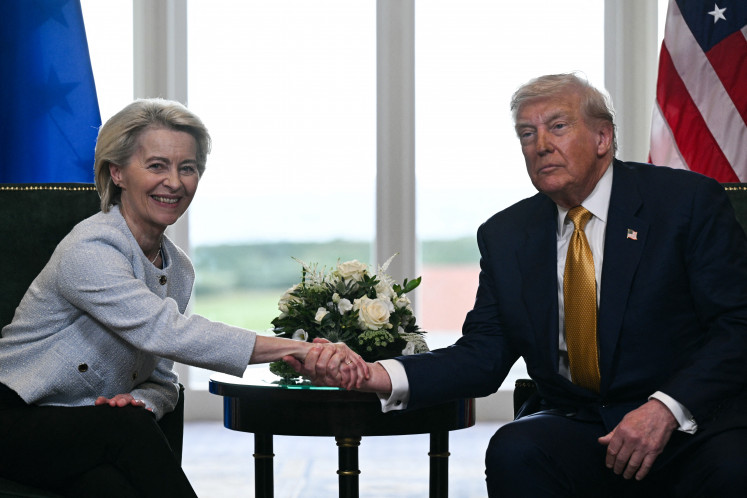Popular Reads
Top Results
Can't find what you're looking for?
View all search resultsPopular Reads
Top Results
Can't find what you're looking for?
View all search resultsCoffee firms won't be ready to comply with EU deforestation law - report
Coffee firms' lack of preparedness for the law might prompt them to shift sourcing to more developed regions like Brazil that have better traceability, leaving the millions of mostly small scale, poverty stricken farmers in the lurch, the report says.
Change text size
Gift Premium Articles
to Anyone
M
ost global coffee firms will not be ready to comply with the European Union's new law preventing imports of commodities linked to deforestation, and small farmers may suffer as a consequence, a major coffee sector report has found.
The EU's landmark law, which comes into effect at end-2024, requires importers of commodities like coffee, cocoa, beef, soy, rubber and palm oil to produce a due diligence statement proving their goods are not contributing to the destruction of forests - a major source of climate change - or risk hefty fines.
According to the biennial Coffee Barometer, prepared by a group of NGOs, coffee firms' lack of preparedness for the law might prompt them to shift sourcing to more developed regions like Brazil that have better traceability, leaving the millions of mostly small scale, poverty stricken farmers in the lurch.
It called on both the EU and coffee firms to ensure this does not happen, not least because desperate farmers might be forced, in such a scenario, to expand into forested areas to increase output in order to make ends meet.
These farmers would then sell to regions with less stringent environmental rules, negating the intended impact of the law. Deforestation is responsible for about 10 percent of global greenhouse gas emissions that drive climate change, and the law aims to tackle the EU's contribution to this.
"Investing in farming communities in vulnerable landscapes may seem risky, however these investments are essential to tackling the root causes of global deforestation," said Niels Haak of Conservation International, one of the sponsors of the report.
Read also: Coffee in short supply globally, but RI growers fail to gain
Coffee is produced by an estimated 12.5 million farmers in roughly 70 countries, but just 5 of them - Brazil, Vietnam, Colombia, Indonesia and Honduras - produce 85 percent of the world's coffee.
The remaining 15 percent is produced by 9.6 million farmers or two thirds of the total, in countries like Ethiopia, Uganda, Tanzania, Kenya, Peru, Guatemala, Nicaragua, El Salvador, Costa Rica and Mexico.
These countries have "inadequate infrastructure and low levels of traceability", the report found.
"Without proactive support from buyers, smallholders lacking organization and resources to provide the requisite data for compliance (with the law) will bear the initial impact," the report said.
The EU's deforestation law has caused much consternation amongst producing countries.
Indonesia has accused the EU of "regulatory imperialism", while Malaysia has said the law is a "deliberate effort" to increase costs and barriers for its palm oil sector - a key source of export revenue for the country.
Roughly 130,000 hectares of forest have been lost annually over the last 20 years due to land being cleared for coffee growing as farmers - most of whom remain at or below the poverty line - attempt to make ends meet, the Coffee Barometer found.










